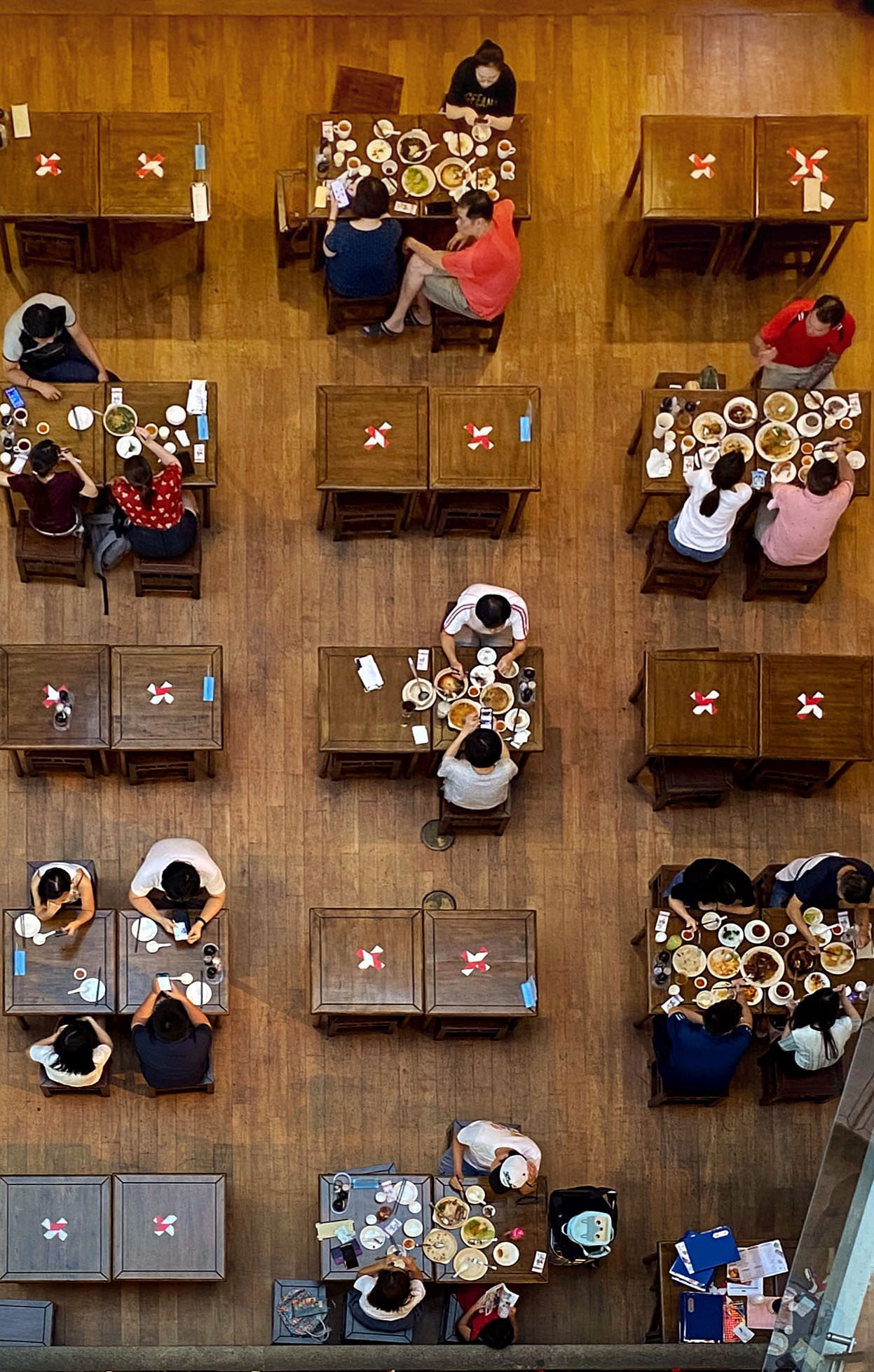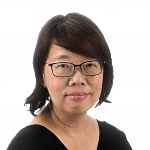It has been about two months since Singapore detected its first case of the coronavirus on Jan 23.
Since then, the number of infection cases here has hit 455 as of yesterday, with two deaths. The virus has since spread from China, where it originated, to the world.
Singapore has dealt with the virus in a whole-of-government and whole-of-society manner that has won praise by experts, spawning many positive media reports.
For younger Singaporeans, watching the crisis unfold is like seeing an object lesson in social studies or history come to life. For older Singaporeans like me, Covid-19 is yet another reminder of the existential truths underpinning Singapore's existence that no Singaporean can run away from.
That is: Sovereign Singapore may be safe and prosperous, but remains perpetually a vulnerable country, with an economy that is exposed and must be open and connected to the world. In such a world, good leadership is critical; so is the bond between people and government.
These are harsh realities of what being Singaporean means, which limit us while challenging us to break out of those limits.
HARD TRUTH NO. 1: VULNERABILITY IS OUR MIDDLE NAME
How is this Covid-19 outbreak showing up our vulnerability and dependence on others? Let me count the ways.
First, when Covid-19 first spread from Wuhan, China, Singapore quickly became the worst hit outside China. This is not surprising, as Singapore was the top outbound flight destination from Wuhan. The first handful of cases were all imported from Wuhan. Our global air connections bring trade and talent directly into our land - and also disease and threats.
Second, we became an early exporter of the disease. A global business meeting held at the Grand Hyatt Singapore from Jan 20 to 22 was attended by some delegates from Wuhan, who infected other delegates who took the virus back to Malaysia, South Korea, the United Kingdom, and thereafter to France and Spain.
Singapore's interconnectedness remains a risk point. Imported cases now make up the majority of cases here, and Singapore has had to close its borders to all except long-term residents and some workers in essential services and their dependants.

The third point of vulnerability: our interdependence with Malaysia.
Our northern neighbour's sudden decision to shut its borders threw companies here into a frenzy, for they rely on about 300,000 Malaysians who work here, many of them commuting daily to work as bus drivers, cleaners, security guards, logistics officers or renovation workers. Singapore also relies on Malaysian imports of chicken, fish, vegetables and eggs.
When pictures of an empty Singapore-Johor Causeway circulated the day the curbs kicked in, concerns over food security were raised, and some Singaporeans felt moments of anxiety - even shock - at how vulnerable the Republic is to events beyond our borders.
Whether in 1965 or 2020, the existential facts of Singapore's geopolitical situation do not change.
A small island city state in the middle of a once-tumultuous region, it can never adopt an isolationist, go-it-alone stance. Instead, it has to be plugged into the world while engaged with its hinterland.
Its survival in the 21st century will continue to depend on its ability to be connected and to be a connector, a hub for transport, logistics, financial flows and, increasingly, data.
One modification: Whereas in 1965 we leapfrogged the region to do business with the world, in 2020 we have to be anchored in Asean and be part of its growth story.
HARD TRUTH NO. 2: A COUNTRY'S LEADERSHIP MATTERS. A LOT
The world is global, but nation states are local. And the raging Covid-19 outbreak shows how differently countries are faring, depending on the strategy taken to cope and the response of the people.
Singapore's fast and, to some, "draconian" approach is to isolate infected cases and do thorough contact tracing; and then quarantine close contacts to ring-fence any infection cluster and prevent further spreading.
Meanwhile, the public is urged to wash hands, monitor for symptoms and seek medical help immediately if ill, and practise social distancing.
This approach consists of a mix of classic infection control methods that kicked into play all at once: containment (isolating the infected person in hospital, quarantining contacts); suppression (persistent contact tracing, stay-home notices for those at risk); and mitigation (slowing spread through social distancing, self-monitoring).
This was a contrast to other extreme methods: a full lockdown of shutting shops, schools and workplaces and asking people to stay home; and a more laissez-faire approach of letting the virus rip through a city and treating those who become sick, in the hope that the mass infections can build "herd immunity".
In Singapore - and Taiwan and Hong Kong, which like Singapore also went through the 2003 severe acute respiratory syndrome (Sars) outbreak - infection numbers have been kept relatively low.
Singapore's reputation as a sort of safer harbour in the crisis has even led to foreigners with symptoms flying here to be admitted to hospital - a ruse the authorities were quick to shut down by denying them free treatment, and now banning all short-term visitors.
Times of crisis forge bonds between leaders and people.
In Singapore, the crisis is taking place as a new generation of leaders is stepping up to run the country. Fourth-generation, or 4G, minister Lawrence Wong - who is in charge of the national development portfolio - co-chairs the near-daily media conferences with Health Minister Gan Kim Yong; and Trade and Industry Minister Chan Chun Sing and Manpower Minister Josephine Teo have been busy explaining the Government's economic and labour market responses.
Foreign Minister Vivian Balakrishnan aptly summed up the situation when he described the Covid-19 crisis in an interview with CNBC Asia as "an acid test of every single country's quality of healthcare, standard of governance and social capital". "If any one of this tripod is weak, it will be exposed, and exposed quite unmercifully by this epidemic."
His advice: "Be prepared for the long haul and be organised. It is not just whole-of-government, it is whole-of-nation."
Singapore's own healthcare system, standard of governance and social capital will be very much tested in the weeks ahead too.
In particular, the quality of policy response from the state will determine how each country copes with the economic impact of the virus, which many experts predict will be severe and prolonged.
This is because more countries are rushing into public containment measures to close schools and offices, ban large social gatherings and close shops and restaurants. Such closures bring the economy to a standstill. When businesses fail, workers lose jobs.
Financial Times columnist Martin Wolf warned that the crisis could be worse than the 2008/2009 financial crisis and called for governments to be "spenders of last resort" to prop up demand. His advice: Act fast, think big - and borrow if need be. Consider making support to companies conditional on them keeping jobs, he wrote.
Singapore's second stimulus package is expected to be announced soon - the first package totalling $6.4 billion was announced on Budget Day on Feb 18.
Countries that try to "flatten" the infection curve - that is, delay the spread of transmission through quarantine and containment measures as Singapore is trying to do - will have a steeper recession curve. This is the conclusion of a report by voxEU.org (the policy portal of European research network Centre for Economic Policy Research) released last week.
A flat infection curve drags out the infection cycle to weeks and months, keeping daily infection numbers low enough so that hospitals can cope. But this means a longer and possibly deeper period of economic slowdown.
Having chosen to save lives and keep infection flows at manageable rates, Singapore has to brace itself for deeper economic impact, especially given its open, connected economy. Singapore is fortunate to have financial reserves to help companies and families buffer the shock.
So whether it is in infection rate, fatality rate of the disease or economic buffers, a country gets the outcome and leadership it deserves and voted for.
One fact, though, remains: The global economy is interconnected, and no nation state can fight off the virus alone. A global pandemic like this will require a coordinated response, both in public health and economic measures.
HARD TRUTH NO. 3: JUST AS GOOD LEADERSHIP IS KEY, SO IS GOOD 'FOLLOWERSHIP'
Trust and a strong people-government bond is vital to a society's well-being.
People tend to emphasise the need for good leadership, but I think being good followers is critical too.
Singapore's Covid-19 measures would not be effective if citizens do not comply with directives to stay home, self-quarantine or see a doctor promptly when sick. The secret to Singapore's successful implementation of these measures is that they have popular buy-in, so compliance is high. In fact, a government quarantine order will be enforced not just by officials' random video calls or by geo-tagging of smartphones, but by the quarantined person's own family, friends and contacts. Social pressure to comply adds an invisible but strong layer of checks on behaviour.
So when some Singaporeans engaged in panic buying of toilet paper and food items, the rest scolded, nagged and mocked them into not repeating the behaviour.
On a more positive note, this sense of solidarity has led to dozens of pro-social community initiatives being launched. On Facebook alone, I see groups sponsoring meals for healthcare workers; individuals offering to house Malaysians stranded here by the closing of borders or collecting clothing and toiletries to pass to them; getting their gym pals to do grocery shopping for the frail elderly in quarantine; and matching students disappointed with cancelled internships to new opportunities.
Unlike during the Sars outbreak when many such efforts were government-initiated or by large community organisations, this time round there are plenty of ground-up projects, many helmed by a younger generation of socially conscious activists.
We are two months into the Covid-19 fight. If it lasts a year, we are only near the beginning. It will be a long haul.
But Singapore's fundamentals are strong: a good healthcare system, trained staff, good infrastructure; an efficient public sector; capable, experienced political leaders, and a well-informed public that knows when to trust and when to probe.
The Covid-19 crisis can be a period when Singapore comes into its own as a more mature society. We accept the hard truths of being an open, vulnerable economy but strive to overcome our limits. We do so by being a vigilant, highly efficient city state with good leadership and a cohesive people, pulling together as SGUnited in fighting the virus.
Naysayers used to scoff that Singapore wouldn't survive its founding Prime Minister Lee Kuan Yew, that Singapore would crumble after he died, which was five years ago today.
Today, in the middle of a crisis, Singapore is earning the world's respect for how it is coping. There is still a long, tough journey ahead and the battle is not won, so we must not let down our guard.
Singaporeans must continue the fight against Covid-19, assiduously taking our temperature and washing our hands, mindful of repeated reminders to observe public hygiene and maintain social distancing.
Mr Lee once said: "If Singapore is a nanny state, then I am proud to have fostered one."
I think he would be proud of how the nanny state is coming together, virus crisis and looming recession notwithstanding.











